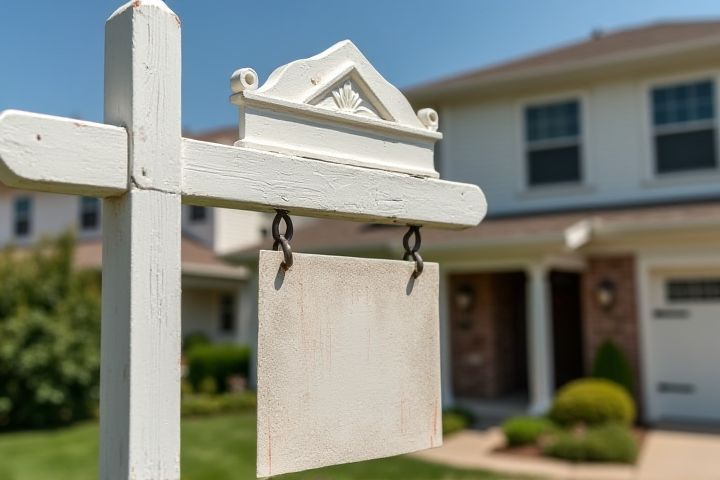
To locate house foreclosures, start by visiting real estate websites that specialize in distressed properties, such as Zillow, RealtyTrac, and Foreclosure.com. Local government websites often provide lists of properties in foreclosure, including auction details and public notices. You can also look into your local county courthouse, where foreclosure filings are officially recorded. Networking with real estate agents who specialize in foreclosures can give you insider access to upcoming listings. Finally, consider attending real estate auctions, where you can bid on properties that are being foreclosed.
Where To Find House Foreclosures
Bank websites
Bank websites are a primary resource for finding house foreclosures, as many financial institutions list their own repossessed properties for sale. Major banks like JPMorgan Chase, Wells Fargo, and Bank of America often have dedicated foreclosure sections on their websites, providing detailed listings, photos, and property descriptions. You can typically access this information by navigating to the "Real Estate Owned" (REO) or "Foreclosed Homes" sections of these sites. Furthermore, these platforms may include filter options to help you narrow down your search based on location, price range, or property type.
Real estate auction sites
Real estate auction sites are excellent resources for finding house foreclosures, as they compile listings from various banks and government entities. Websites like Auction.com and Hubzu offer detailed property information, including auction dates and starting bids, making it easy for you to explore options. By regularly checking these platforms, you can access exclusive listings and participate in bidding directly online. Additionally, local courthouse auctions listed on sites like RealtyTrac provide opportunities to purchase homes at potentially lower prices, often requiring a keen understanding of the auction process.
Local government websites
To find house foreclosures, explore local government websites that often provide valuable resources. Many counties have dedicated sections for real estate auctions and foreclosure listings, which are updated regularly, typically every few weeks. You can access detailed information about properties, including bid dates and legal descriptions, making it easier for you to stay informed. Additionally, local tax assessor offices and clerk of courts frequently publish lists of properties in foreclosure, offering an excellent starting point for your search.
Real estate agents
Real estate agents often have access to exclusive listings of house foreclosures, providing insights into properties that are not widely advertised. By partnering with a local real estate agent, you can tap into their network, which may include banks and lenders looking to offload foreclosures quickly. Agents often utilize Multiple Listing Service (MLS) databases to identify distressed properties, giving you an edge in your search. Overall, leveraging the expertise of a real estate agent can significantly expedite your journey in finding valuable foreclosure opportunities.
Online foreclosure listings
Online foreclosure listings are a valuable resource for identifying properties that are in the foreclosure process. Websites like Foreclosure.com, RealtyTrac, and Zillow provide comprehensive databases of available foreclosures, often featuring property details, auction dates, and sale prices. You can filter your search by state, city, or even neighborhood, allowing you to pinpoint opportunities that match your criteria. Using these platforms can save you time and help you make informed decisions when looking to invest in distressed properties.
Sheriff’s office websites
To find house foreclosures, start by visiting your local Sheriff's Office website, as they often list properties that are up for auction due to unpaid taxes or mortgage defaults. Many sheriff's offices provide detailed descriptions, including property addresses, auction dates, and bidding instructions, allowing you to easily access essential information. In addition to the website, some sheriff's offices may also offer newsletters or notifications for upcoming auctions, ensuring you stay informed on potential opportunities. You can enhance your search by checking public records or contacting the office directly for further assistance and updates.
Public records office
House foreclosures can often be located at your local Public Records Office, where you can access vital information about property ownership, liens, and mortgage information. Many counties maintain online databases, allowing you to search for foreclosure notices and auction dates by entering property addresses or owner's names. In 2022, approximately 324,000 homes were foreclosed in the United States, illustrating the significant volume of available properties. To stay updated, consider visiting the office regularly or subscribing to online alerts from your local government websites.
Real estate investment groups
Real estate investment groups (REIGs) often provide valuable insights and listings for house foreclosures, making them a key resource for investors looking to capitalize on distressed properties. Many REIGs host regular meetings where members can network and share information about foreclosures in their areas. Online platforms and forums associated with these groups frequently list available properties and auction details, ensuring you have access to timely opportunities. Joining a local REIG can enhance your knowledge and help you discover potential investments that might otherwise go unnoticed.
Courthouse postings
To find house foreclosures, focus on courthouse postings, which provide official notices of properties entering foreclosure. Most jurisdictions require lenders to file foreclosure actions with the local courthouse, making these postings a reliable source of information. You can access these listings either in person or online, depending on your local courthouse's policies, with many offering databases that can refine your search by property type or auction date. Regularly checking these postings can reveal opportunities to acquire properties at below-market rates, potentially saving you thousands.
Financial institutions newsletters
To find house foreclosures, start by subscribing to newsletters from major financial institutions such as banks and credit unions, which often provide updates on available foreclosed properties. Many of these institutions, including Wells Fargo and Bank of America, may feature listings of homes in their monthly or quarterly publications. Additionally, websites like Zillow and RealtyTrac aggregate foreclosure listings and can be filtered by your preferences, including price range and location. Regularly checking these sources, which can number in the hundreds, ensures you stay informed about potential investment opportunities.
